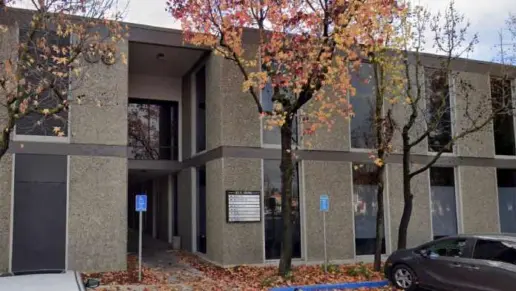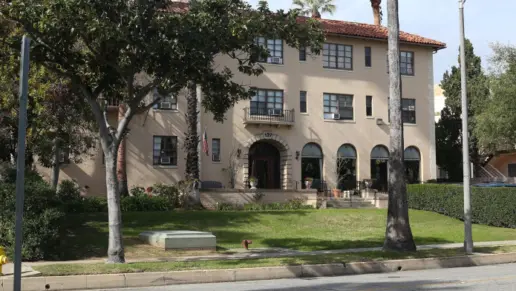About Imperial County Behavioral Health Services – Children Outpatient
The Imperial County Behavioral Health Services - Children Outpatient branch is located in Brawley, California. The center specializes in substance use disorder, alcohol use disorder, opiate disorders, and other co-occurring behavioral health disorders. Levels of care include intensive outpatient programs (IOP), general outpatient treatment, medication-assisted treatment (MAT), dual diagnosis, case management, and aftercare for children and teenagers. Specialized services are available for justice-involved persons. Services are available in English and Spanish.
Clients aged 12-18 undergo a personalized evaluation and receive a customized treatment program. Medication-assisted treatment (MAT) is provided on-site and supervised by clinicians. The center uses group and individual therapy, creative arts therapy, and family therapy. Additional programs may include education, preventive and crisis interventions, and supervised symptom withdrawal management. Clients may also receive support at school and through community outreach programs to improve the client’s emotional and mental wellbeing in daily living. Justice-involved clients receive IOP at their respective juvenile halls and are referred to Imperial County Behavioral Health Services for substance use disorder treatment upon release.
Upon completion of IOP treatment, clients continue to receive support and recovery services. Pain and withdrawal management is utilized, and clients prepare to transition into independent and sustained sobriety. Affiliate outpatient programs include therapeutic behavioral services (TBS), which provides individual counseling for clients with acute cases; intensive care coordination (ICC), which coordinates outpatient treatment with other services the client’s family may be receiving; and intensive home-based services (IHBS), which focuses on clients’ emotional wellbeing in the home and socialization in their community.
Imperial County Behavioral Health Services – Children Outpatient features additional youth programs in addition to traditional outpatient treatment. Youths aged 13 and older may be eligible for the HOPE program, which provides holistic alternative treatments for mental health disorders. Teenagers in middle school and high school who continue to have acute emotional disorders may be enrolled in the Adolescent Habilitative Learning Program (AHLP), which can help stabilize emotional difficulties outside of outpatient care.
Imperial County Behavioral Health Services – Children Outpatient offers follow-up services outside of outpatient treatment. After treatment is complete, clients receive continuous care and support. Additional family resources, intervention tools, and preventive care are available. Education affiliations, such as the Vista Sands Socialization Program, which works with children aged 7-12. The Middle School Behavioral and Educational Program for middle grade students socializes clients in their education environments. Other information seminars and webinars may be held to prevent relapse, and a crisis hotline is provided. The Imperial County Behavioral Health Services – Children Outpatient may provide referrals to outside facilities or home-based services for specialized treatment.
Imperial County Behavioral Health Services accepts Medicare and Medi-Cal and offers self-pay and financing options. The center may be in-network with major insurance providers, including Aetna, Anthem, Blue Cross Blue Shield, Cigna, Humana, TRICARE, and United Healthcare. Please contact your insurance provider for specific details concerning out-of-network coverage.
Other Forms of Payment
Medicaid is a state based program that helps lower-income individuals and families pay for healthcare. Medicaid covers addiction treatment so those enrolled can use their coverage to pay for rehab. When a program accepts Medicaid the client often pays very little or nothing out of their own pocket.
Private insurance refers to any kind of healthcare coverage that isn't from the state or federal government. This includes individual and family plans offered by an employer or purchased from the Insurance Marketplace. Every plan will have different requirements and out of pocket costs so be sure to get the full details before you start treatment.
Self-pay involves paying for treatment out of your own pocket. You can use savings or credit, get a personal loan, or receive help from family and friends to fund your treatment. If you don't have insurance or your insurance plan doesn't cover a specific program, self-pay can help ensure you still get the care you need.
Financial aid can take many forms. Centers may have grants or scholarships available to clients who meet eligibility requirements. Programs that receive SAMHSA grants may have financial aid available for those who need treatment as well. Grants and scholarships can help you pai for treatment without having to repay.
Sliding scale payments are based on a client's income and family size. The goal is to make treatment affordable to everyone. By taking these factors into account, addiction recovery care providers help ensure that your treatment does not become a financial burden to you or your family, eliminating one barrier to care.
Medicare is a federal program that provides health insurance for those 65 and older. It also serves people under 65 with chronic and disabling health challenges. To use Medicare for addiction treatment you need to find a program that accepts Medicare and is in network with your plan. Out of pocket costs and preauthorization requirements vary, so always check with your provider.
Military members, veterans, and eligible dependents have access to specific insurance programs that help them get the care they need. TRICARE and VA insurance can help you access low cost or no cost addiction and mental health treatment. Programs that accept military insurance often have targeted treatment focused on the unique challenges military members, veterans, and their families face.
Addiction Treatments
Levels of Care
Treatments
Many of those suffering from addiction also suffer from mental or emotional illnesses like schizophrenia, bipolar disorder, depression, or anxiety disorders. Rehab and other substance abuse facilities treating those with a dual diagnosis or co-occurring disorder administer psychiatric treatment to address the person's mental health issue in addition to drug and alcohol rehabilitation.
Mental health rehabs focus on helping individuals recover from mental illnesses like bipolar disorder, clinical depression, anxiety disorders, schizophrenia, and more. Mental health professionals at these facilities are trained to understand and treat mental health issues, both in individual and group settings.
Clinical Services
Cognitive Behavioral Therapy (CBT) is a therapy modality that focuses on the relationship between one's thoughts, feelings, and behaviors. It is used to establish and allow for healthy responses to thoughts and feelings (instead of unhealthy responses, like using drugs or alcohol). CBT has been proven effective for recovering addicts of all kinds, and is used to strengthen a patient's own self-awareness and ability to self-regulate. CBT allows individuals to monitor their own emotional state, become more adept at communicating with others, and manage stress without needing to engage in substance abuse.
Creativity is inherently healing, and can help those in recovery express thoughts or feelings they might not otherwise be able to. Creative arts therapy can include music, poetry/writing, painting, sculpting, dance, theater, sandplay, and more. Unlike traditional art, the final product matters far less than the experience of creation and expression itself.
Research clearly demonstrates that recovery is far more successful and sustainable when loved ones like family members participate in rehab and substance abuse treatment. Genetic factors may be at play when it comes to drug and alcohol addiction, as well as mental health issues. Family dynamics often play a critical role in addiction triggers, and if properly educated, family members can be a strong source of support when it comes to rehabilitation.
Group therapy is any therapeutic work that happens in a group (not one-on-one). There are a number of different group therapy modalities, including support groups, experiential therapy, psycho-education, and more. Group therapy involves treatment as well as processing interaction between group members.
In individual therapy, a patient meets one-on-one with a trained psychologist or counselor. Therapy is a pivotal part of effective substance abuse treatment, as it often covers root causes of addiction, including challenges faced by the patient in their social, family, and work/school life.
Life skills trainings involve all the skills a person must have in order to function successfully in the world. These include time management, career guidance, money management, and effective communication. Truly successful addiction recovery is based on the ability to not only live substance-free, but to thrive. Life skills teaches the practical necessities of functioning in society, which sets clients up for success in life, and therefore sobriety.
Motivational Interviewing (MI) is a clinical approach to helping people with substance abuse issues and other conditions shift behavior in positive ways. It is more goal-oriented than traditional psychotherapy, as MI counselors directly attempt to get clients to consider making behavioral change (rather than wait for them to come to conclusions themselves). Its primary purpose is to resolve ambivalence and help clients become able to make healthy choices freely.
Trauma therapy addresses traumatic incidents from a client's past that are likely affecting their present-day experience. Trauma is often one of the primary triggers and potential causes of addiction, and can stem from child sexual abuse, domestic violence, having a parent with a mental illness, losing one or both parents at a young age, teenage or adult sexual assault, or any number of other factors. The purpose of trauma therapy is to allow a patient to process trauma and move through and past it, with the help of trained and compassionate mental health professionals.
Contact Information
195 South 9th Street
Brawley, CA 92227


